Mozambique: Parliament considers recruitment of children by terrorists a "barbaric act"
Portugal: President ends visit to Mozambique by calling it his ‘second homeland’
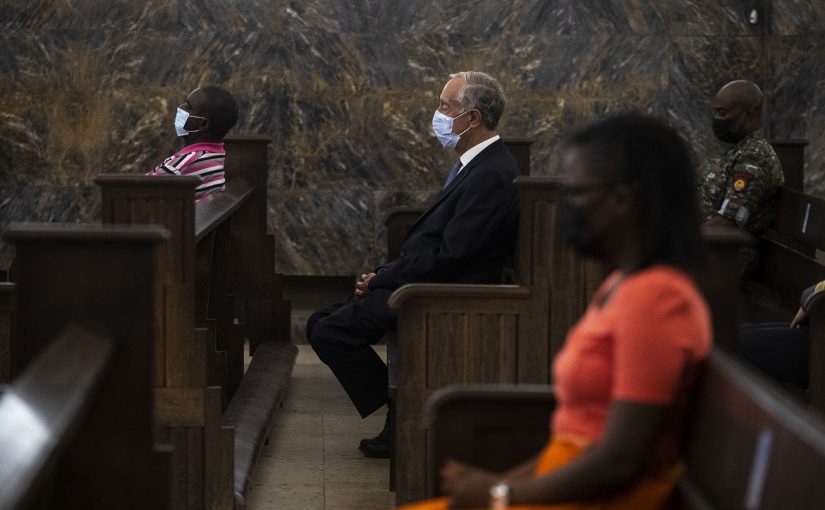
Marcelo Rebelo de Sousa attends Sunday mass at Maputo's Cathedral. [Photo: Lusa]
Portugal’s president, Marcelo Rebelo de Sousa, has ended a four-day official visit to Mozambique, calling it his “second homeland” and saying that with each visit he comes to like this “bewitching” country even more.
“I have known Chimoio for 53 years, I have known Maputo for 54 years, but I have known Cabo Delgado, Niassa, Tete, all of Mozambique for over 50 years,” said de Sousa at an event at a Maputo hotel on Sunday, the last day of his trip. “That means I’m very old, and I started very early. And I feel, every time I come here, that I like Mozambique more than the last time.”
In a speech lasting half an hour before about 400 Portuguese residents in Mozambique, the president described Mozambique as “a great sister country, fascinating, seductive, bewitching” to whose future it was worth making a commitment.
“I myself doubt from time to time if there are not those who feel, in the secret of their heart, more Mozambican than Portuguese,” he said. “I don’t get angry, because it is my second homeland.
“I understand, because whoever arrives here, whoever lives here, never ceases to have roots in Mozambique, they have double roots forever,” he added, exclaiming: “Viva Mozambique, viva Portugal!”
At the end of a four-day official visit, de Sousa promised to return in August for the reopening, following its restoration, of the cathedral of Quelimane, the provincial capital of Zambezia.
At that time, he said, he would “travel other paths here in Mozambique, who knows if going with President [Filipe] Nyusi to Cabo Delgado [which has been plagued by rebels] but certainly have the opportunity to pass through Maputo.”
This was de Sousa’s third trip to Mozambique as president; he chose it as the destination for his first state visit, in May 2016, which was restricted to the capital and its immediate surroundings, and returned in January 2020 for Nyusi’s inauguration after his re-election as president. That time, in addition to Maputo, he went to Beira.
De Sousa, 73, visited Mozambique when he was 19 and 20, during holidays from his studies at Lisbon’s Faculty of Law, when his father, Baltazar Rebelo de Sousa, was governor-general (1968-1970) of the then overseas province, whose inhabitants were already fighting for independence.
That was the time when he became friends with the local painter and poet Malangatana, whose paintings came to fill de Sousa’s house in Cascais.
“To remember how I met him and how we became brothers is to remember 1968 and the first painting, bought with my pocket money as a second year university student,” de Sousa wrote when he learned of Malangatana’s death in January 2011. “Plus the meetings in 1969 and 1970, in Lourenço Marques [now Maputo] and in Matalana.”
Two decades after Portugal’s 1974 Revolution and Mozambique’s independence in 1975, de Sousa visited the country in a political capacity, as leader of Portugal’s centre-right Social Democratic Party (PSD), campaigning for a foreign policy that gave priority to the relationship with Portuguese-language countries rather than Europe.
At that time, in October 1996, six years had passed since the signing of the General Peace Agreement between the governing Mozambican Liberation Front (Frelimo) and the Mozambican National Resistance (Renamo), and two years since the first free elections in Mozambique. De Sousa said at the time that he wanted to “give the PSD’s embrace to Mozambique” and celebrate “the time of democracy”.
In Maputo, he was received by the then president of Mozambique, Joaquim Chissano, but also met Afonso Dhlakama – who led Renamo until his death in 2018 – and announced “memorandums of understanding” under which the PSD would cooperate with the two parties.
Away from party life, de Sousa continued to travel frequently to Mozambique, above all for conferences and academic exchange actions, as a university law professor, even broadcasting his popular television commentary slots from Maputo when he was there.
His last visit to Mozambique before becoming president of Portugal was in December 2015, when he was already a candidate, to take part in Mozambique’s first Social and Economic Forum.
“Whatever functions I will take on in the future, [there is] a privileged treatment, a special affection and a natural understanding is present in Mozambique on the part of many Mozambican people, many of them in office, and the strengthening of relations between countries, institutions, economies, cultures and universities,” he said in an interview with Lusa at the time.


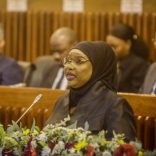
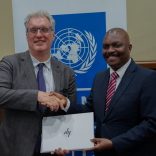
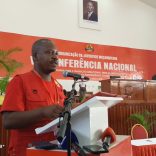
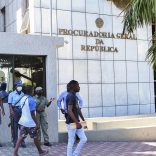

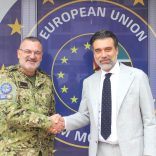




Leave a Reply
Be the First to Comment!
You must be logged in to post a comment.
You must be logged in to post a comment.